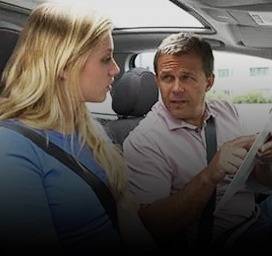When it comes to vehicle safety and braking systems, the terms ABS and Non-ABS are frequently mentioned. But what exactly do these acronyms stand for, and how do they impact your driving experience? Let’s dive into the world of automotive braking systems and explore the crucial differences between ABS and its non-ABS counterpart.
1. Definition:
ABS: Anti-lock Braking System is a safety feature that prevents wheel lock-up during braking by modulating brake pressure. It allows the driver to maintain steering control during an emergency stop.
Non-ABS: Non-Anti-lock Braking System refers to traditional braking systems without the ABS feature. In these systems, when excessive brake pressure is applied, the wheels can lock up, potentially leading to skidding.
2. Wheel Lock-Up Prevention:
ABS: The primary function of ABS is to prevent wheel lock-up. It achieves this by electronically controlling brake pressure, allowing the wheels to maintain traction with the road surface.
Non-ABS: In non-ABS systems, excessive brake pressure can lead to wheel lock-up, especially during hard or emergency braking. This can result in skidding and a loss of steering control.
3. Steering Control:
ABS: One of the significant advantages of ABS is that it helps maintain steering control during heavy braking. By preventing wheel lock-up, ABS allows the driver to steer around obstacles while slowing down.
Non-ABS: Without ABS, the driver may experience difficulty steering during emergency braking, especially on slippery surfaces. The locked wheels can lead to a loss of directional control.
4. Brake Fluid Pressure Modulation:
ABS: ABS systems have sensors that monitor wheel speed. If the system detects impending wheel lock-up, it modulates brake fluid pressure, releasing and reapplying the brakes rapidly to prevent skidding.
Non-ABS: In non-ABS systems, there is no automatic modulation of brake fluid pressure. The brake pedal directly controls brake pressure, and excessive force can lead to wheel lock-up.
5. Effectiveness in Slippery Conditions:
ABS: ABS is particularly effective on slippery surfaces, such as wet or icy roads, where maintaining traction is challenging. It helps prevent skidding and enhances overall braking performance.
Non-ABS: Non-ABS systems may struggle to provide effective braking on slippery surfaces, as wheel lock-up can occur more easily, leading to a loss of control.
6. Vehicle Stability:
ABS: ABS contributes to overall vehicle stability during braking, especially in emergency situations. It enhances safety by preventing skidding and allowing the driver to navigate obstacles.
Non-ABS: Non-ABS systems may compromise vehicle stability during hard braking, increasing the risk of accidents, particularly in challenging driving conditions.
In summary, the primary difference between ABS and non-ABS lies in the ability of ABS to prevent wheel lock-up, maintain steering control, and enhance overall braking performance, especially in emergency situations and on slippery surfaces. Non-ABS systems lack these advanced features, which can impact vehicle safety and control during braking.
FAQ
Q: Can I retrofit ABS to a non-ABS vehicle?
A: Retrofitting ABS can be complex and costly. It’s generally not recommended unless performed by certified professionals, and even then, results may vary.
Q: Do all new vehicles come with ABS?
A: In many regions, ABS is a mandatory safety feature for new vehicles. However, it’s essential to check the specifications of individual models.
Q: How does ABS impact braking distance?
A: ABS can potentially reduce braking distance by preventing wheel lock-up, allowing the driver to maintain steering control and apply maximum braking force.
Q: Are there any disadvantages to ABS?
A: While ABS is a crucial safety feature, some drivers may find the pulsating brake pedal sensation during ABS activation unusual. However, the benefits far outweigh any perceived disadvantages.
Q: Can I disable ABS if I prefer traditional braking?
A: Most vehicles with ABS do not provide an option to disable the system. It’s designed to operate automatically, enhancing safety in various driving conditions.







